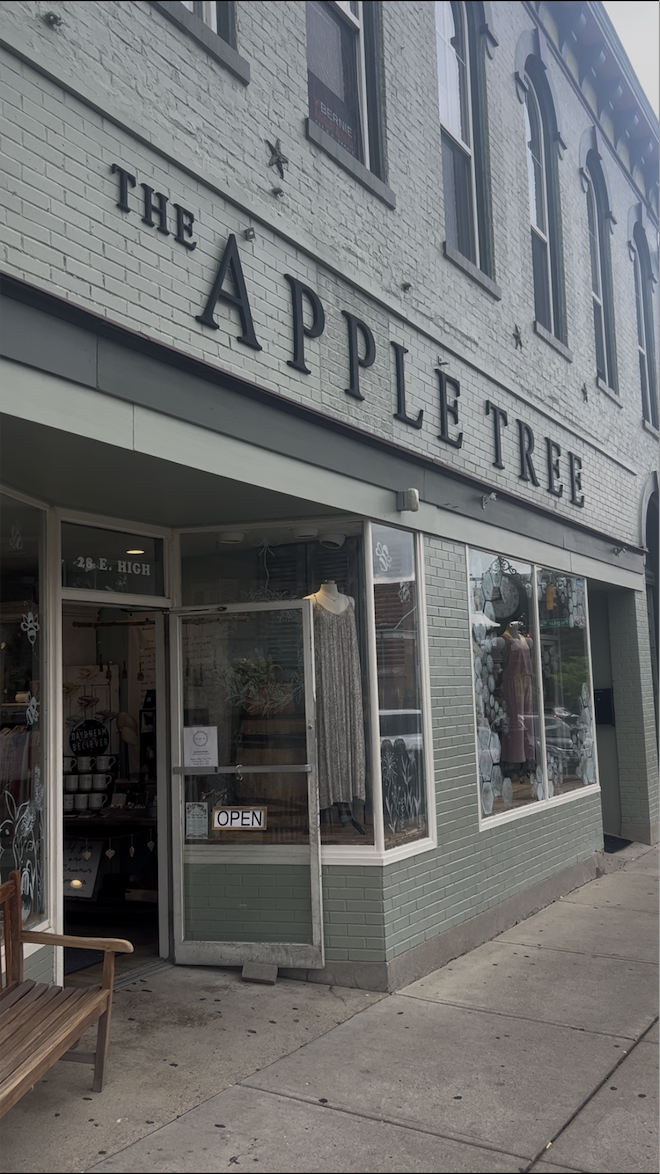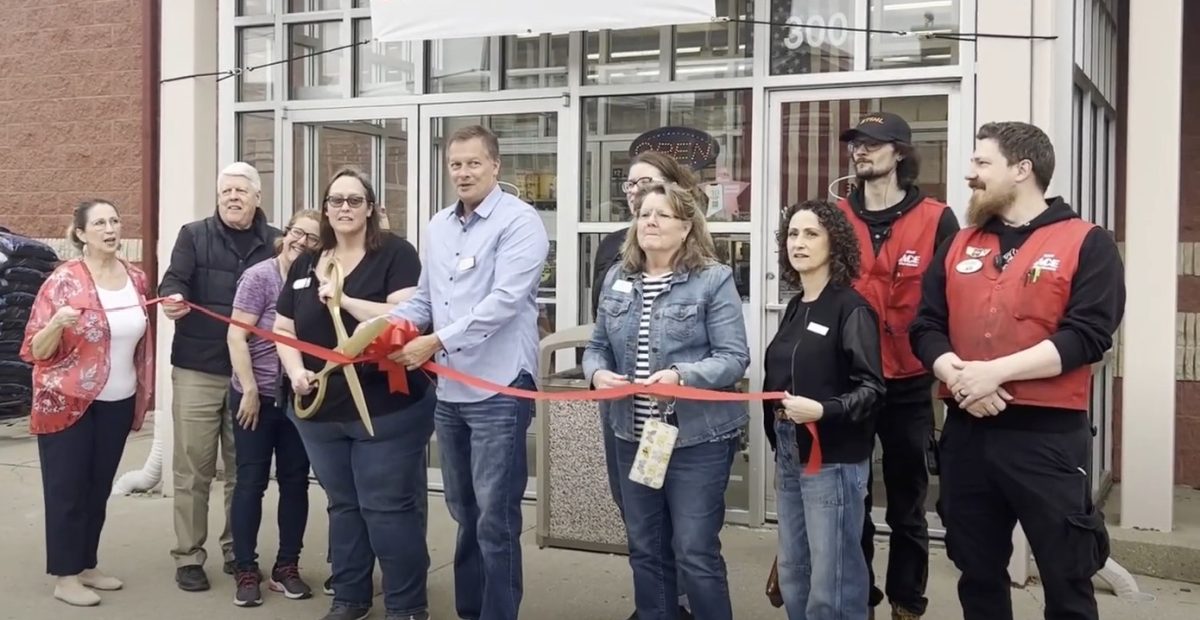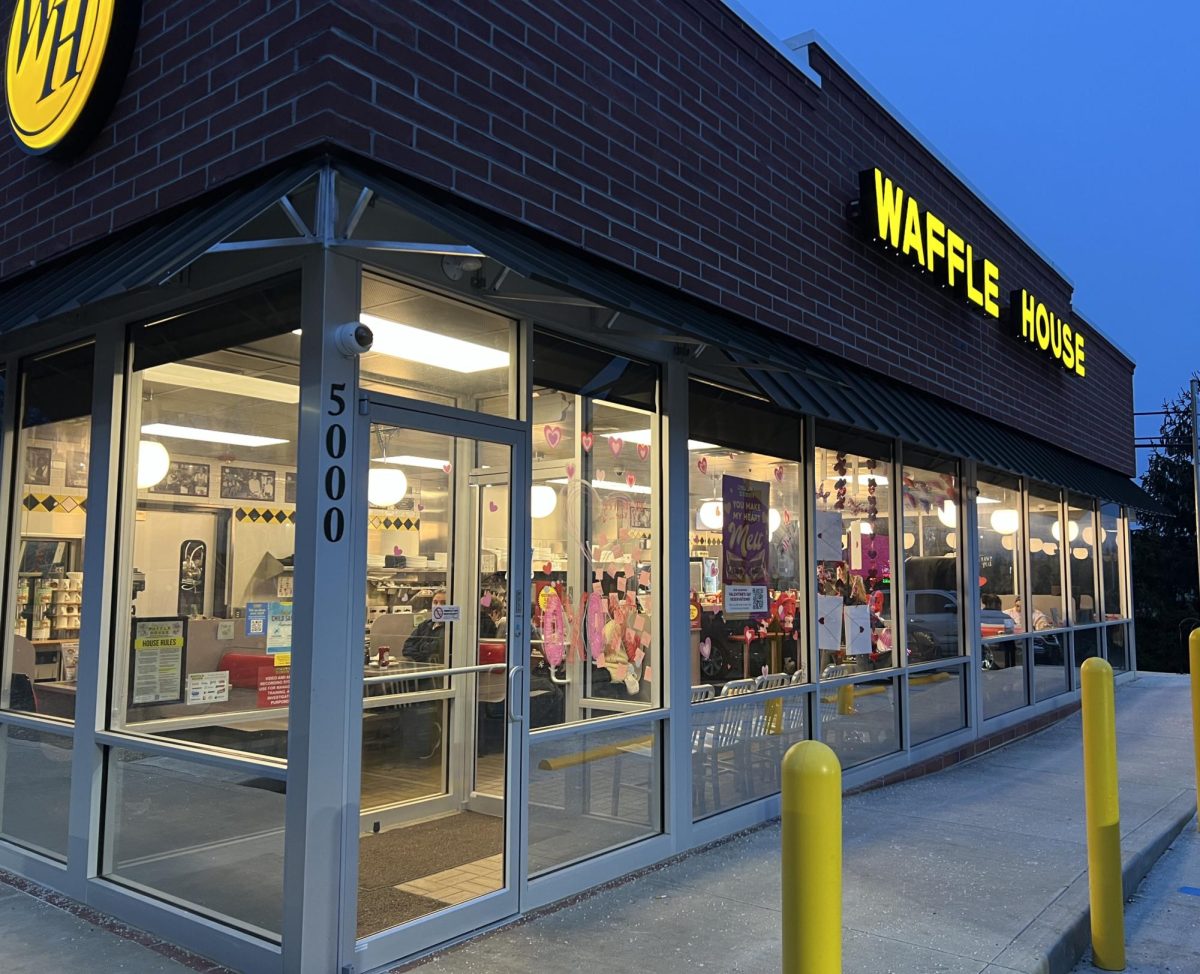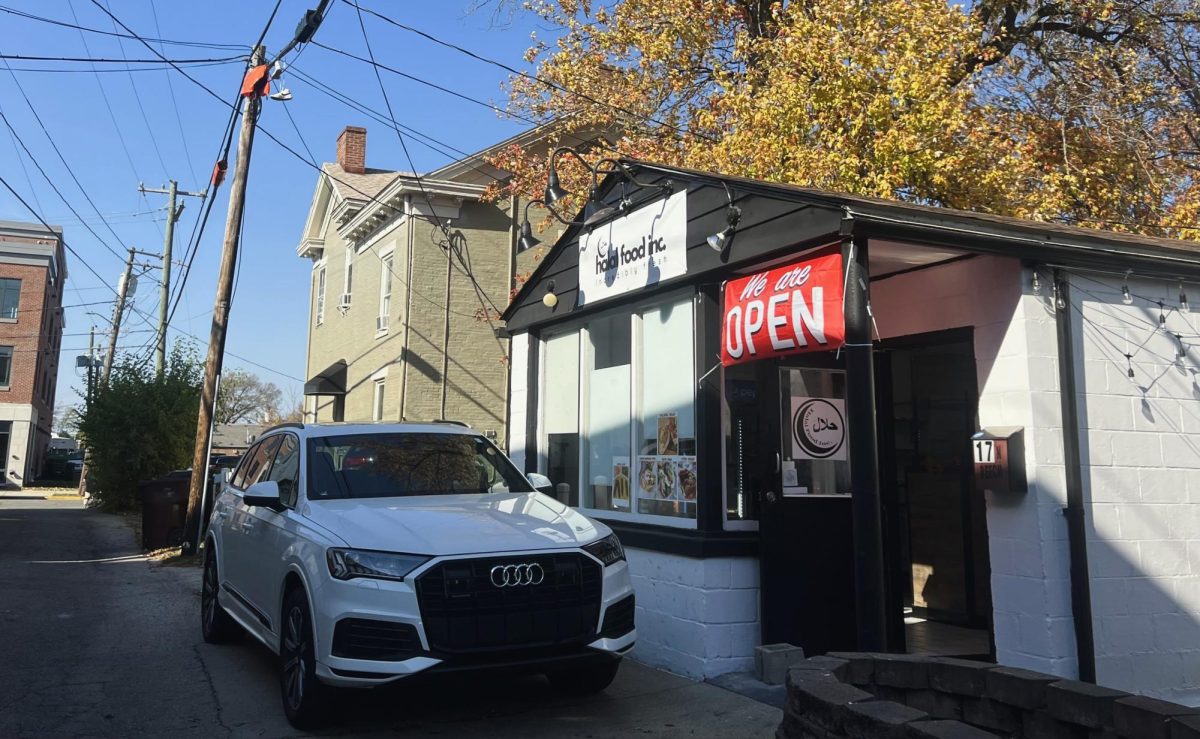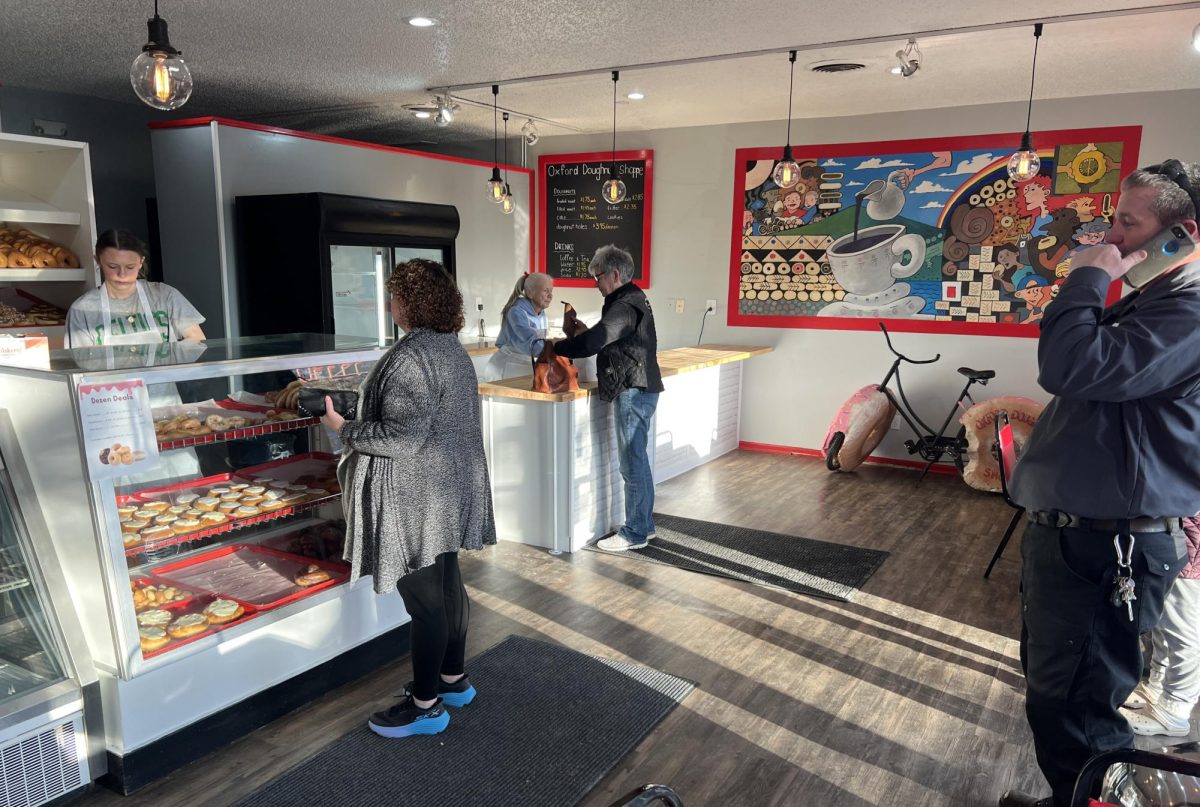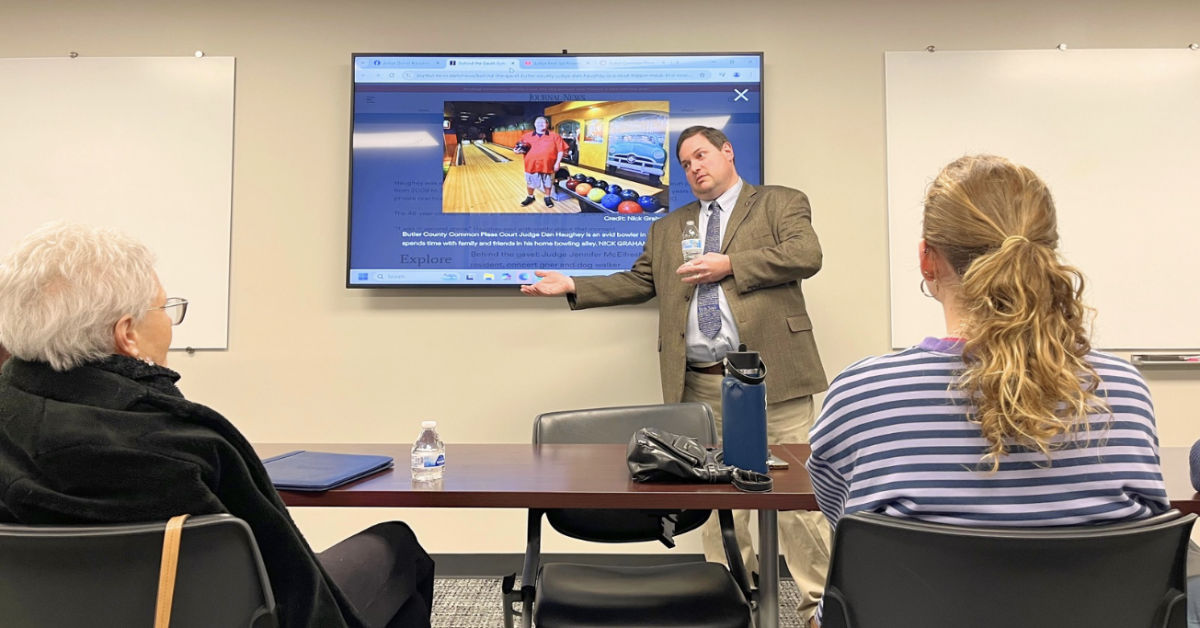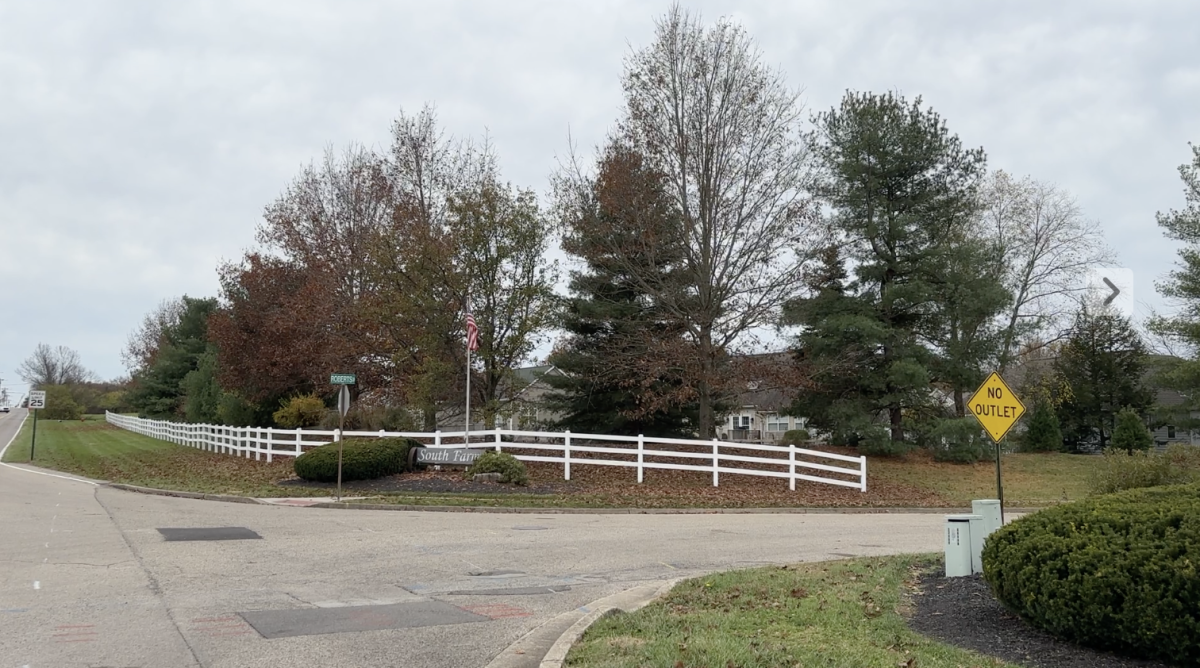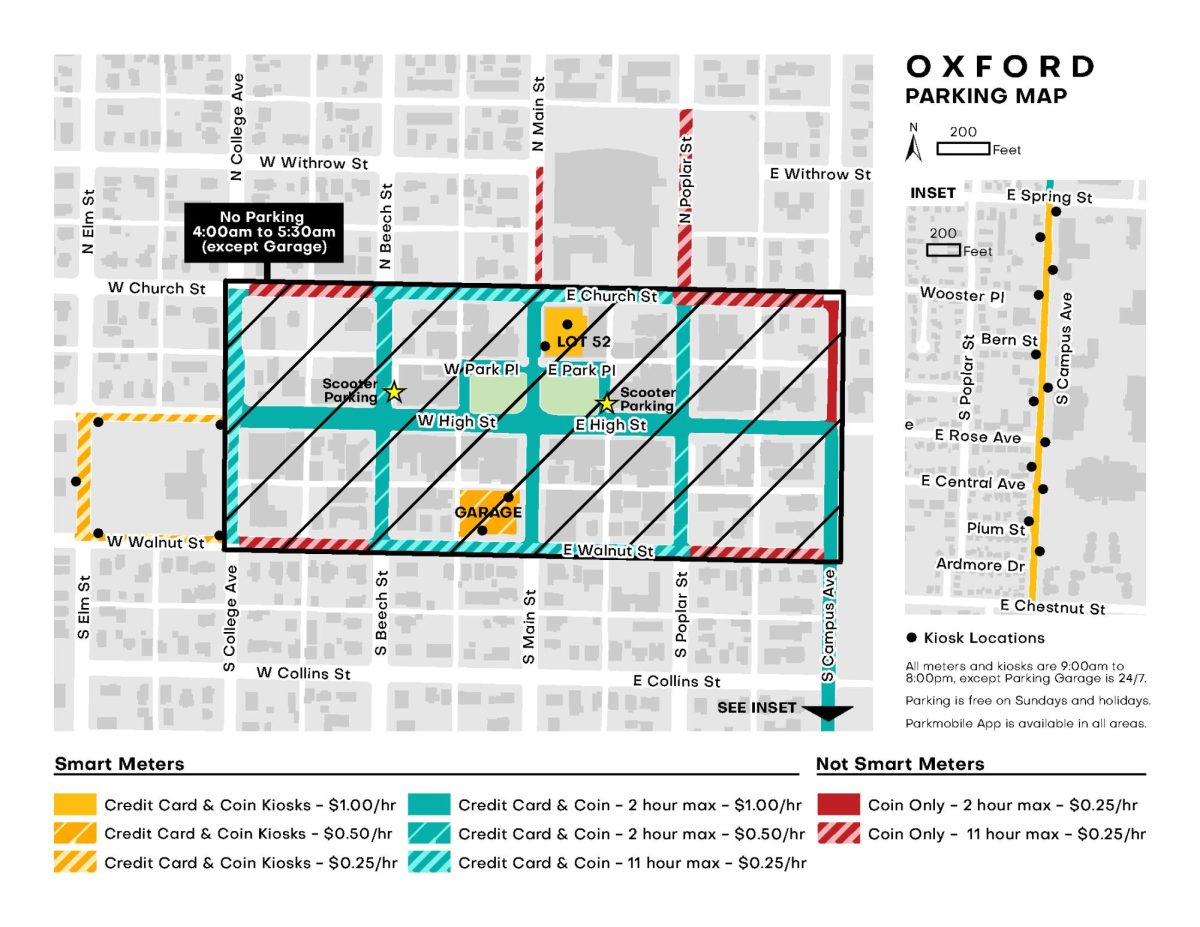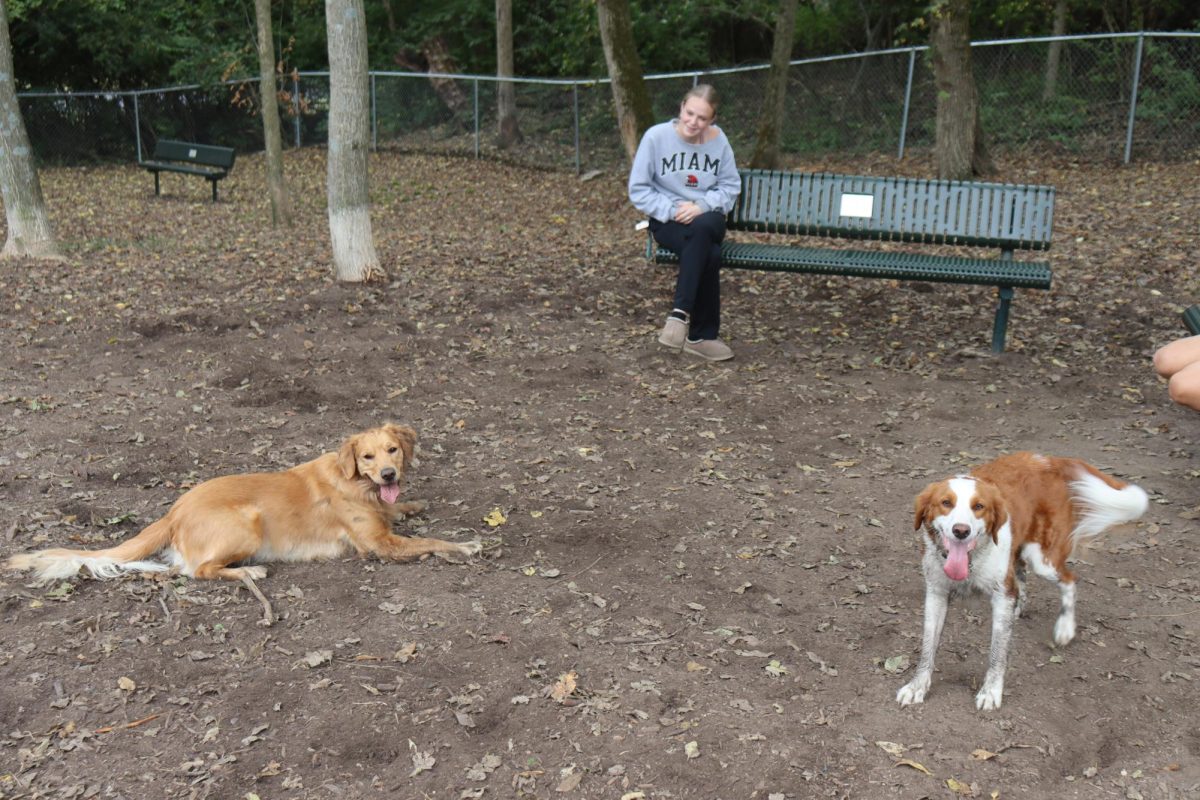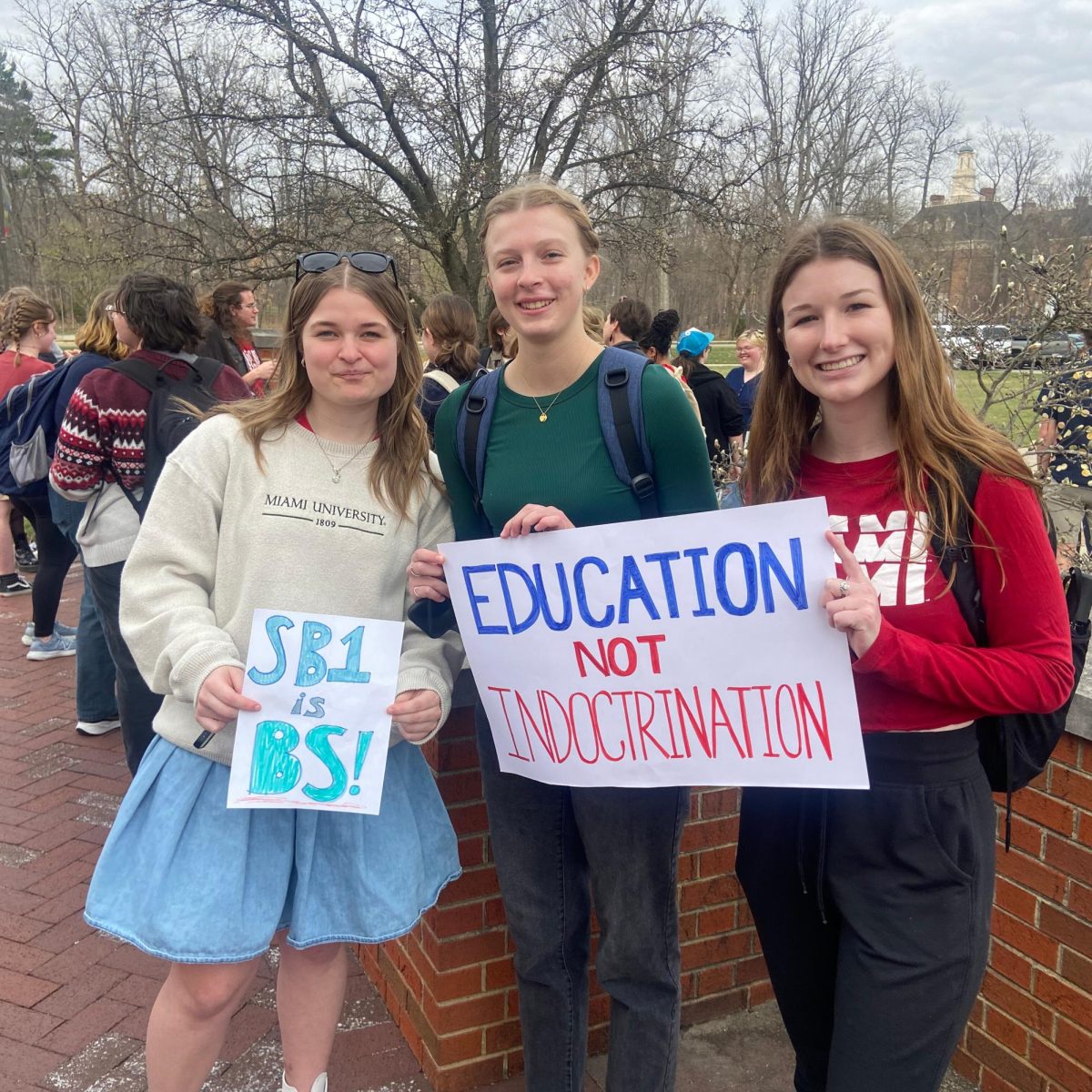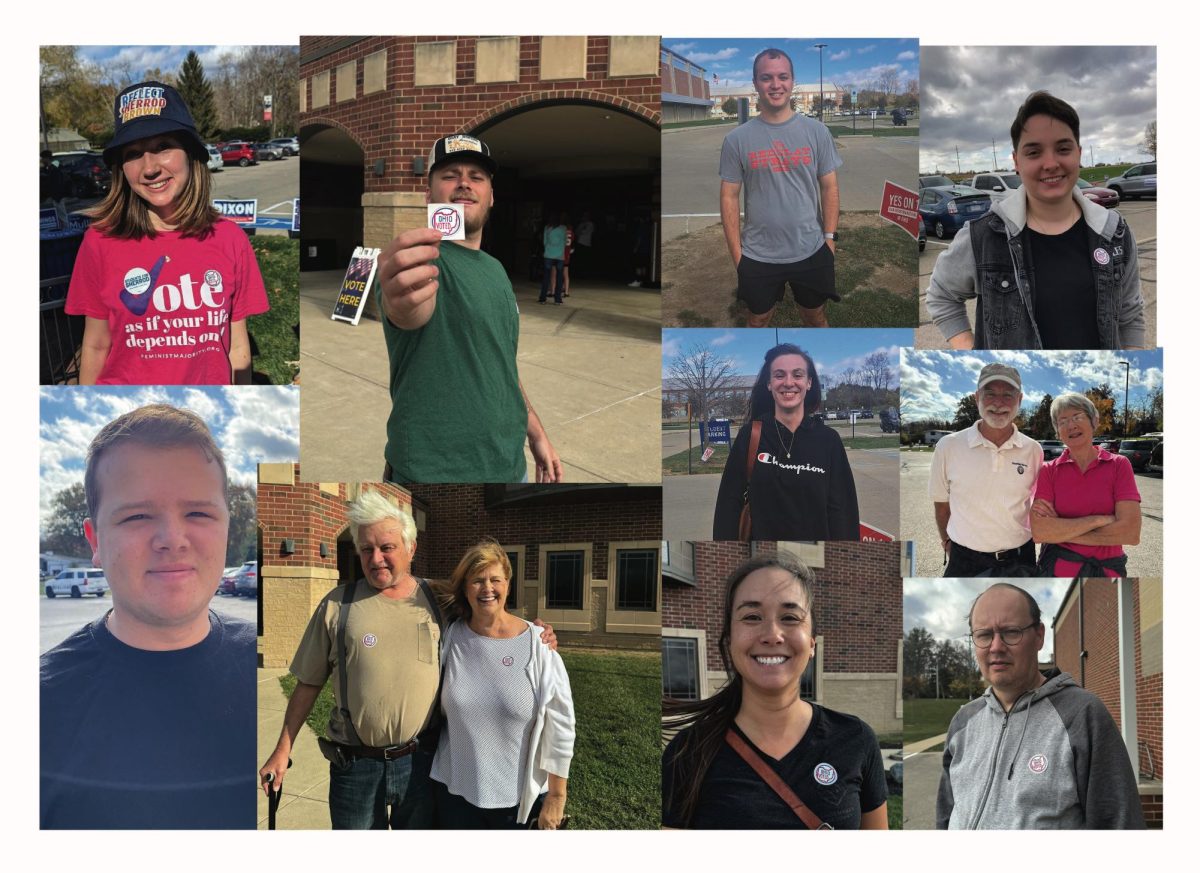Sustainability, economic development, housing for all, excellent service and “town and gown” relations were among the most popular topics at the city council and staff retreat Monday night.
The Oxford City Council and city department heads met at the Marcum Conference Center for a four-hour brainstorming session to discuss strategic goals and plans for the city in the coming year. The meeting was facilitated by the not-for-profit group HPG Network of Fort Wayne, Ind., to help guide the participants through the goal-setting process.
The meeting started with a discussion of last year’s goals and what progress had been made toward achieving them. Last year’s goals included sustainability, strategic town and gown planning, housing diversity, expanding historical preservation, economic development and diversity, improving the health safety and wellness of Oxford and improving public communication and engagement. Sustainability for Oxford would mean reducing the city’s carbon footprint and being environmentally conscious with every decision. According to the council and administration, Oxford is working toward being a model community recognized for renewable energy utilization.
“I think it’s fair to say we’ve made progress on a lot of them,” City Manager Doug Elliott said of last year’s goals. “Some more than others.”
Sustainability was the number one priority identified last year. Council and city staff noted results of this goal include the city working alongside community leaders to launch a composting program, and the implementation of larger recycling bins.
The city leaders also noted efforts to improve community engagement by issuing a bi-weekly newsletter to the citizens of Oxford, informing them of upcoming events, council meeting agendas, and more.
At Monday’s retreat, council members agreed a lot more that could be done to create a more sustainable environment for Oxford. One thing that would play into this desired improvement is more transportation options, said Councilor David Prytherch.
“You shouldn’t have to have a car to be a citizen in Oxford,” Prytherch said.
Oxford has a bus system via the Butler County Regional Transit Authority that runs through campus and to many points uptown. However, Oxford has no regular public transportation to Cincinnati, or the Dayton or Cincinnati airports.
Challenges are not necessarily problems
Oxford Mayor Mike Smith had one big takeaway from the event.
“We have a lot of good ideas, and a lot of our ideas aren’t necessarily problems, they’re things we want to build on,” Smith said.
The meeting had a heavy focus on not only achieving sustainability but improving economic development within the city. Participants were asked how they would measure the goal of improving economic development. Smith mentioned having restaurants stay open for all 12 months of the year. Assistant City Manager Jessica Greene said that having year-round residency would improve the overall economic development of the city.
According to the consensus of the meeting, this could be accomplished by having a more diverse business scene in Oxford. Prytherch said there needs to be more businesses that will make people want to live in Oxford.
“We need to have that spread of amenities,” Prytherch said.
That led into the discussion of affordable housing in Oxford. Councilor Jason Bracken wanted to focus efforts on fixing the issue of homelessness in Oxford.
“We’re a very privileged community,” Bracken said. He urged that the city concentrate more of its efforts in finding places for people who don’t have homes.
Police Chief John Jones weighed in on affordable housing, saying that officers can’t live in their own communities because of the pricing.
“There’s multiple reasons for wanting your officers to live in their community, and they won’t,” Jones said. Much of the single-family housing within the city is too expensive, for people on city salaries, he said.
Several council members campaigned on the goal of environmental sustainability during the past few election cycles. Sustainability was identified as the city’s number one strategic priority at last year’s retreat.
“I hope that when we do something sustainability wise, or when we do anything that the staff will look at what the sustainability implications are when we do it,” Smith said. An example of this was given in the hypothetical form of replacing utility vehicles. Smith said that, ideally, the staff would look into an electric option as well as a standard vehicle.
“I’d like to think that everybody realizes that this is the first step in what could be decades of work,” Smith said.
A need to improve town/gown relations
Another concern the group had was the communication with Miami University Miami is the city’s largest employer, its largest landowner and its largest landlord. Yet when University President Gregory Crawford announced two weeks ago that the school was eliminating 39 jobs, it came as a surprise to the city.
Because the community experiences huge population fluctuations depending on whether or not Miami is in session, the council discussed whether Oxford should consider itself a city or a rural community. When the students are in town, according to the meeting, Oxford has more of the features of a city, but when they leave Oxford obtains its rural community characteristics.
“There’s no question we’re more vibrant when the students are here,” Elliott said.
City leaders decided at the end of the meeting to discuss these goals again at a future organizational meeting. The notes from the meeting will be made into a report from the facilitators, and the hopes are the council will continue to work toward goal setting.


